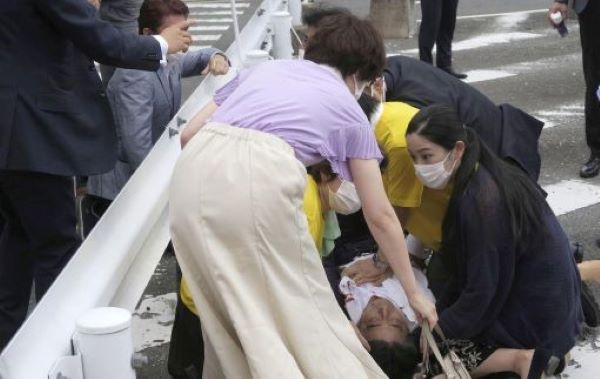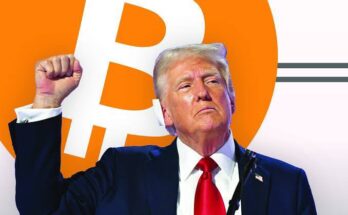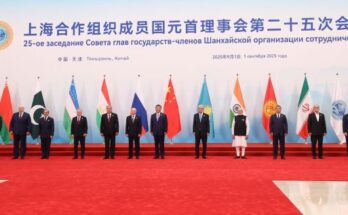
Team News Riveting
Nara, July 8
Former Japanese Prime Minister Shinzo Abe, an arch-conservative and consequential leaders in country’s postwar history, was shot and critically wounded during a campaign speech Friday in Nara.
He was airlifted to a hospital in a state of cardiac arrest. Officials said he was not breathing and his heart had stopped functioning.
Sources quoting the eyewitnesses said the assailant approached Abe from behind and fired a weapon that looked like hand-made, with the media footage showing an object with what looked like two barrels wrapped in black tape lying on the ground after the attack. Abe missed the first shot and continued his speech unperturbed. However, he was not lucky in the second shot. Japan is known to have one of the strictest gun control laws in the world.
Abe lost power and fell down. A team of doctors and paramedical staff from the nearby health centre rushed to the spot and gave him primary treatment. The 67-year-old, who was also the longest serving leader of the ruling Liberal Democratic Party, suffered an injury to the right side of his neck due to a gunshot and was bleeding internally in the left side of his chest.
The former prime minister was transported via a medical helicopter to Nara Medical University in the city of Kashihara, south of central Nara, according to officials.
Police have arrested Tetsuya Yamagami, 41, of Nara on suspicion of attempted murder and seized the weapon believed used in the shooting. The suspect had reportedly served in the Maritime Self-Defense Force for three years in the 2000s.
Government officials said the health condition of former prime minister was not showing positive response and was in a critical condition.
Amidst Chinese military and economic expansion, Abe is widely credited as the key architect of the QUAD framework — a security grouping of Japan, the U.S., Australia and India. During Abe’s second term as prime minister, which ran from December 2012 to September 2020, he provided stability to Japanese politics following a period when the country was criticized for its “revolving door” prime ministers, in which the nation’s leader changed every year.
He previously became prime minister in 2005, only to step down a year later due to his health.



